
- How about winning a flight ticket worth up to US$500?
- Become a member by January 31st and get a chance to win!
Discover if Croatia is cheap for living and traveling. Explore budget-friendly tips to save money and make the most of your visit to Croatia.
8min
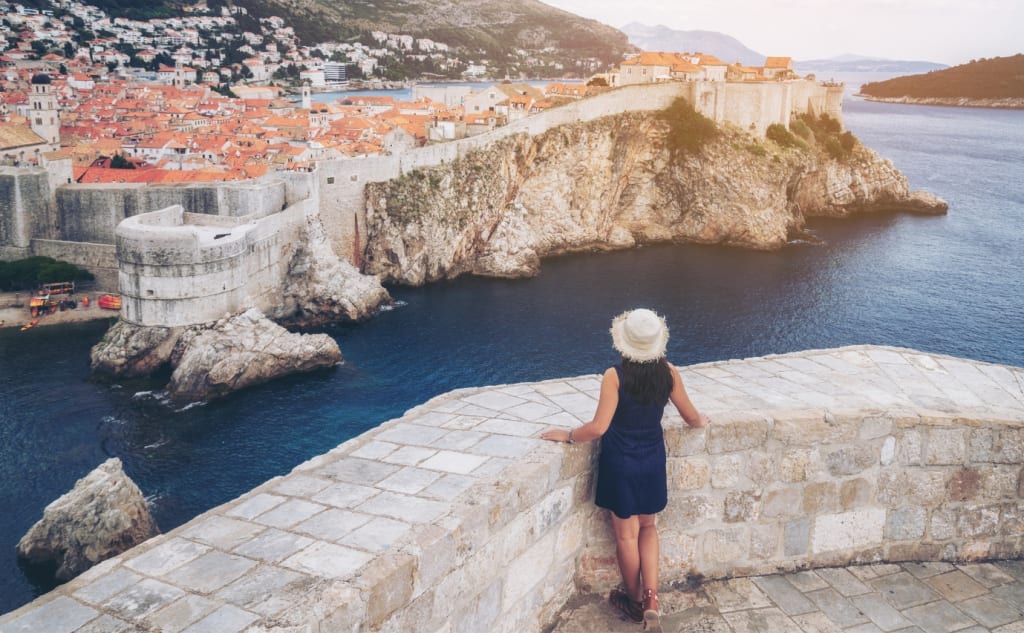
If you're planning to visit Croatia, one of the first questions that might come to your mind is: Is Croatia cheap? The answer to this isn't as straightforward as you might think, as largely depends on where you're coming from, what your spending habits are, and the part of the country that you are planning to visit/move into.
Generally speaking, while it's more affordable than Western European countries, it tends to be a bit pricier than its Balkan neighbors like Albania, Montenegro, Macedonia, Kosovo and Romania, to name a few. Still, it offers great valur for money when considering its wealth of history, natural beauty and culture
In this guide, we will delve into whether living in Croatia is affordable or not. We'll examine the costs associated with housing, food, transportation and other essentials.
We also explore if traveling within Croatia fits your budget. From accommodation prices to meal costs and sightseeing expenses - we cover it all.
Lastly, we provide some practical tips on how you can save money while experiencing all that beautiful Croatia has to offer. Remember: visiting Croatia doesn't always need to be expensive – it’s all about making smart choices according to your budget and wants. Stay tuned as we unravel the truth about prices in Croatia!
Don't miss out: How to plan your first trip to Croatia.
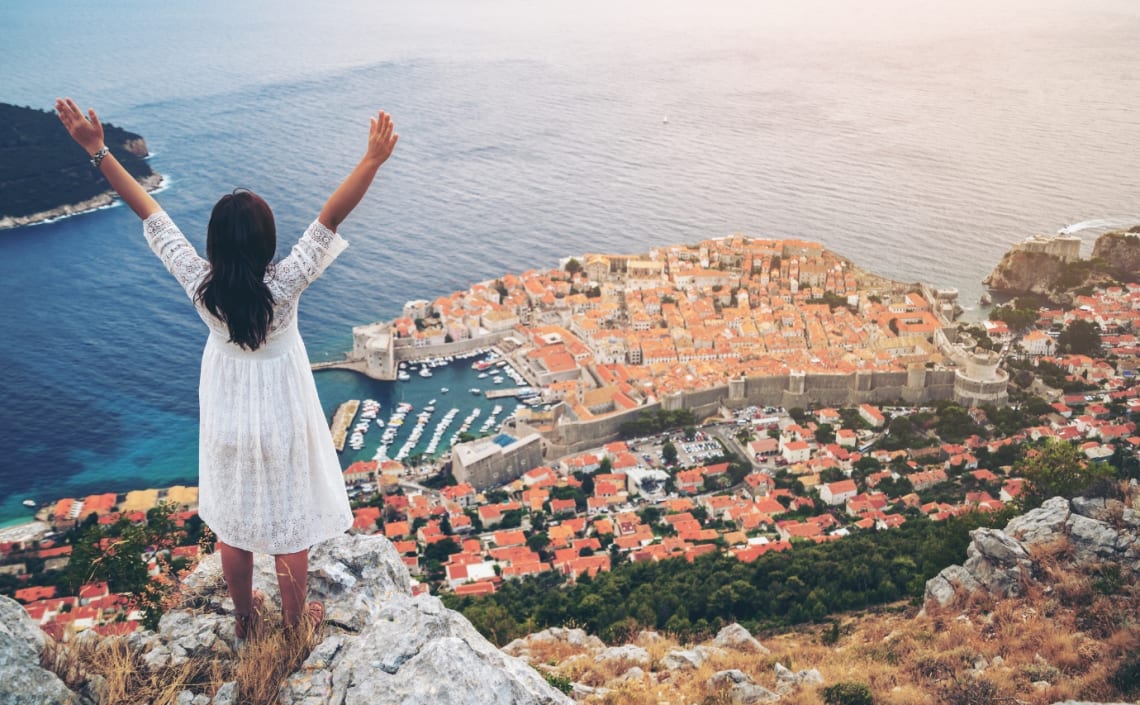
Croatia has been gaining popularity among digital nomads and retirees looking for a change of pace. It offers an appealing mix of historical towns, stunning beaches, and rich culture. Plus, the cost of living can be quite reasonable if you know how to manage your expenses wisely. Definitely much cheaper than living in the US, Canada, the UK, and other Western European contries.
The prices vary significantly depending on whether you choose popular tourist destinations or less-known areas. For instance, Dubrovnik - famous as a Game Of Thrones filming location - tends to have higher costs due to its fame and demand by tourists worldwide. On the other hand, lesser-known regions like Slavonia offer much lower prices without compromising on natural beauty or cultural experiences.
Generally speaking, costs of living are higher along the coast and cheaper in the interior.
Compared to Western European countries, housing costs in Croatia are relatively lower. For instance, renting a one-bedroom apartment in city centers like Zagreb or Dubrovnik may cost around 500 - 700 Euros per month whereas outside these areas could reduce your rent by about 30%.
The food scene in Croatia offers both affordable local cuisine and pricier international dishes. Of course, groceries are less expensive than eating out - expect to spend around 200 - 300 Euros monthly if cooking at home is your preference.
Eating out regularly will obviously increase your food expenses significantly but indulging occasionally won't break the bank – A local meal at an inexpensive restaurant would set you back about 10 Euros.
In terms of transportation costs, again there's good news! Public transport such as buses and trams are quite economical with single tickets costing under 2 Euros even for long distances within cities.
Taxis however can get pricey especially during peak hours so sticking with public transport or carpooling services can help keep commuting costs low.
Your utility bills including electricity, water, internet, mobile services, etc., might average between 100 - 150 Euros/month - certainly manageable compared to other European destinations!
Internet plans start from just over 20 Euros/month while prepaid mobile packages offer generous data limits plus talk time starting from only around 10 Euros.
To sum up, although not dirt-cheap, living in Croatia does provide value-for-money, especially when considering what it has got going for itself – stunning landscapes, rich history, vibrant culture, tasty cuisine... the list goes on!

Over the years, Croatia has emerged as a popular tourist destination. Its stunning coastline, historic cities, and vibrant culture have attracted travelers from around the world. However, this growing popularity has also led to an increase in travel prices. While, as we said, it's still more affordable than most Western European countries, it's not as budget-friendly as it once was.
Bear in mind that there are also fluctuations between high (summer) and low (winter) seasons which affect accommodation rates especially along the coastal area, but with some careful planning ahead it's possible not only to save money but also to enjoy this beautiful country without breaking your bank account!
Plan your visit with The ultimate guide to Backpacking Croatia.
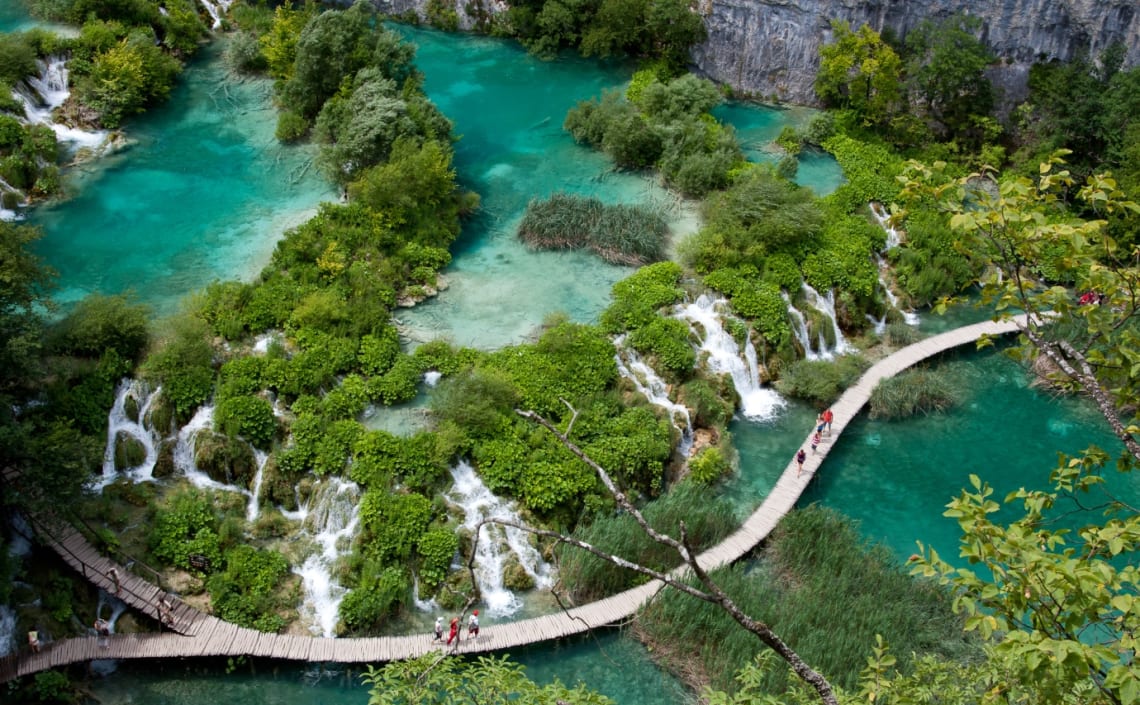
The cost of flights to Croatia can vary significantly depending on your location and when you book.
Generally speaking though, international flights are relatively expensive compared to domestic ones within Europe. For instance, if you're flying from New York City to Zagreb (the capital of Croatia), expect costs anywhere between USD 500 - 1000 round trip during peak season.
On the other hand Skyscanner, a reliable platform for comparing flight prices, shows that short-haul flights within Europe can be found for under 100 Euros if booked well in advance.
For money-saving tips, check out: How to find cheap flights to anywhere.
Croatia boasts an extensive public transportation network that includes buses, trains and ferries - all offering reasonable fares.
Buses are often the quickest way to get around due their frequency and extensive routes covering even remote areas; single tickets usually range from $1.5- $7 Euros.
Trains provide another affordable option with second-class tickets typically costing less than bus fares.
Ferries operate along the Adriatic coast connecting mainland with numerous islands; prices depend on distance but generally hover around 3-9 Euros per person one-way
For those who prefer driving themselves or plan longer stays renting a car could be worth considering despite higher costs involved .Ddaily rental rates start at about 40 Euros.
Local products like olive oil, truffles and lavender honey, command premium prices reflecting their quality craftsmanship, however they make excellent souvenirs gifts back home.
That said, bargain hunters will enjoy hunting treasures flea markets where everything old - from furniture to vintage clothes and records - are sold at ridiculously low price. Check out Hrelic Market and Britanac Flea Market in Zagreb and Splitski Sajam in Split. Remember always to haggle, as is expected by sellers. Don't take it too seriously and have fun trying get the best deal possible.
The cost of sightseeing in Croatia varies greatly depending on what you want to see and do. Historic sites like Dubrovnik's City Walls charge entrance fees which add up quickly especially during summer months when tourism peaks - admission here is currently set at 30 Euros, or you could buy the Dubrovnik Pass for 35 Euros which also gives you access to other tourist sights like Minčeta Tower, Fort Bokar and Fort of St. Lawrence.
On top end there are guided tours or sailing trips running into hundreds dollars but remember these often include meals, transport, etc, making them good value overall.
However don't despair if these seem out of reach. There are plenty of free and very cheap attractions too, such as exploring Split's Diocletian Palace Complex, walking through Plitvice Lakes National Park (although the park does have an entry fee, its sheer size means hours spent wandering), strolling down Rovinj's picturesque streets (photo below) and many opportunities for hiking in Croatia.
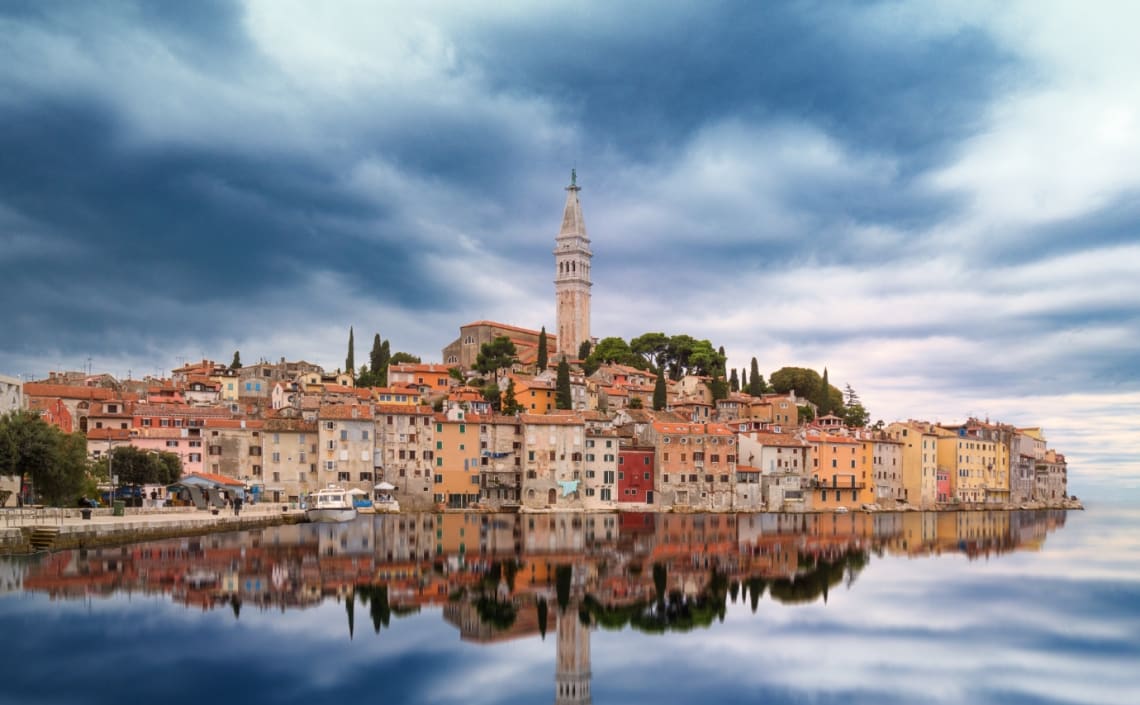
We understand that not everyone travels with a large budget which is why we've compiled some tips on how to live and travel in Croatia without breaking the bank:
If possible, this should be on top of your list: plan your trip outside peak summer months (June - August), when accommodation rates and flights skyrocket, especially in tourist hotspots like Dubrovnik, Hvar Island or Split.
During low season (October - April), prices drops significantly.
Finding a place to stay in Coratia doesn't have to break the bank! Hostels can be an affordable option where you not only save money but also meet fellow travelers. Prices for dorms average 15 - 20 Euros in Split and Zagreb in low/shoulder season and 25 Euros in Dubrovnik. There are also many camping sites in natural areas, like near the famous Plitvice Lakes National Park which makes a great budget-friendly alternative.
An even more exciting way of saving on accommodation costs would be through volunteering via Worldpackers. In exchange for a few hours of work per day at hostels, farms, permaculture projects, animal shelters or other type of local initiatives across Croatia, you get free accommodation and sometimes meals too! This platform provides safe opportunities for cultural exchange while helping out local communities.
You just need to subscribe to the Worldpackers Community for free and start saving your favorite volunteer positions until you are ready to get verified. That will give you access to contact potential hosts of different project in which you would like to take part.
These are some examples of volunteering positions in Croatia:
Check out all the volunteering opportunities in Croatia!
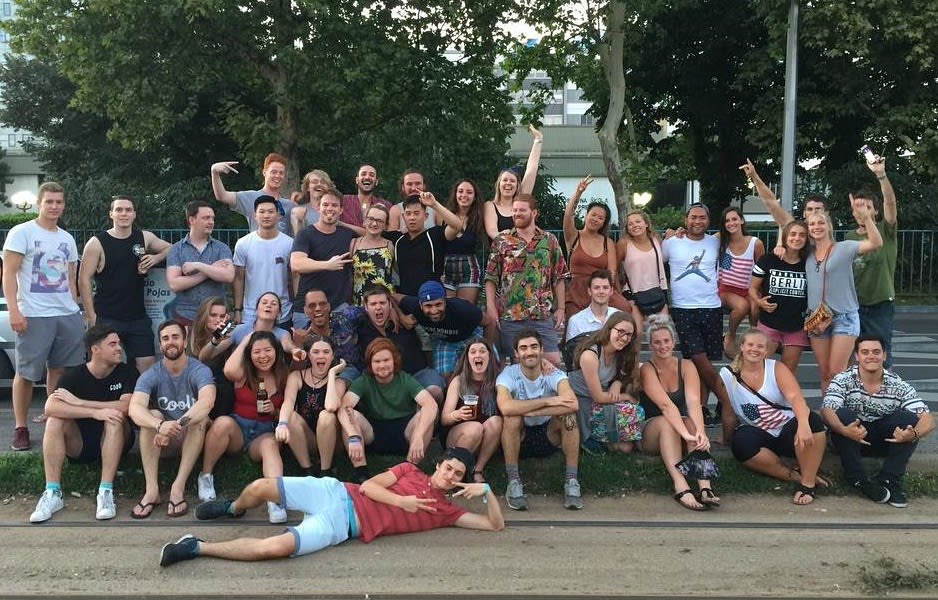
Eating out every meal can add up quickly when traveling. Save money by eating at local eateries and small family-run taverns (called 'konoba' in Croatian) rather than touristy restaurants; they often serve authentic dishes at much lower prices, and many have special lunch menus at discounted prices.
Street markets are also worth exploring - here you will find fresh produce which makes for a healthy self-catered meal.
Also, by staying at paces with a kitchen you can buy groceries at local markets and supermarkets and prepare your own meals, which can make you save a lot of money.
Check out these tips on how to travel Europe on a backpacker's budget
The public transportation system in Croatia is reliable and inexpensive – buses cover most towns while ferries connect coastal cities with various islands.
Also consider sharing rides (carpooling) through popular sites like Bla Bla Car and Carpool World. These is not only a great resource to save money on transportation but also a way to meet a lot of interesting and usually very friendly people.
Croatia's natural beauty, parks, and cultural sites offer countless activities that cost little-to-nothing! Hiking trails lead through stunning landscapes offering views right out of postcards without costing anything apart from effort invested.
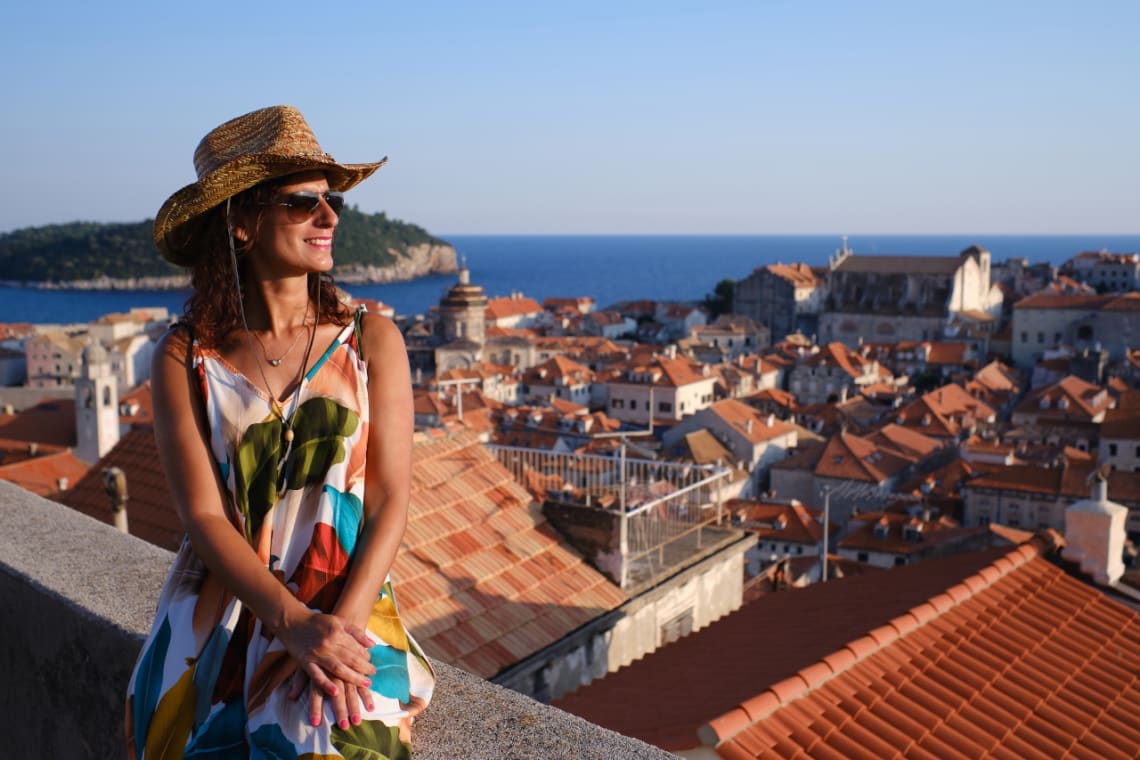
In conclusion, Croatia offers diverse experiences catering to both luxury seekers and backpackers alike. With careful planning, it's certainly feasible to enjoy what this beautiful country has to offer even on a tight budget!
And remember, the best way to experience real Croatian life, save a lot of money, and make friends along the way, is by joining Worldpackers volunteering programs. Worldpackers provides a platform for safe volunteering opportunities around the world, allowing immersive cultural exchange experiences. Not only will you learn new skills but also get insider's tips to fully enjoy the country regardless of the size of your wallet!
If you like these tips, follow Worldpackers social media to keep up with the news: we are on Instagram and Tiktok.
Write here your questions and greetings to the author
za
Dec 10, 2023
Hi
Graziella
Jan 05, 2024
ok